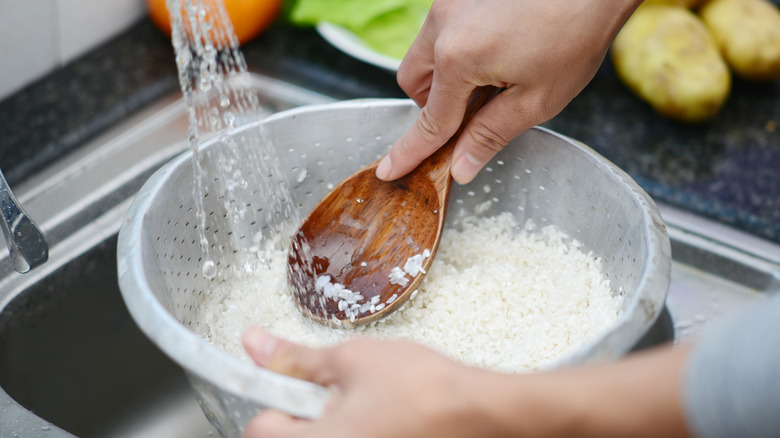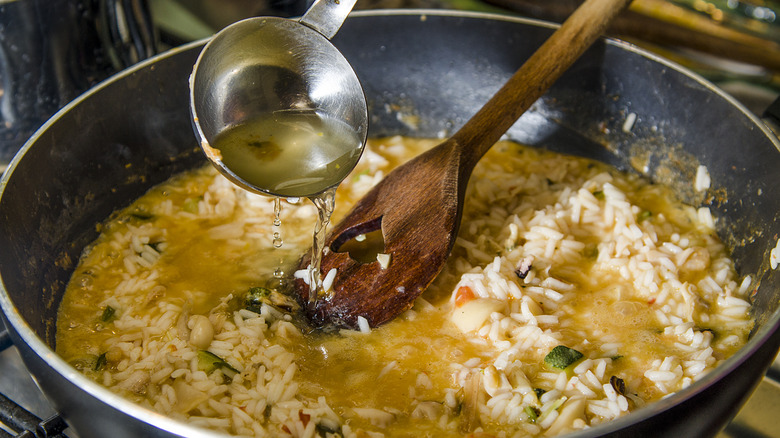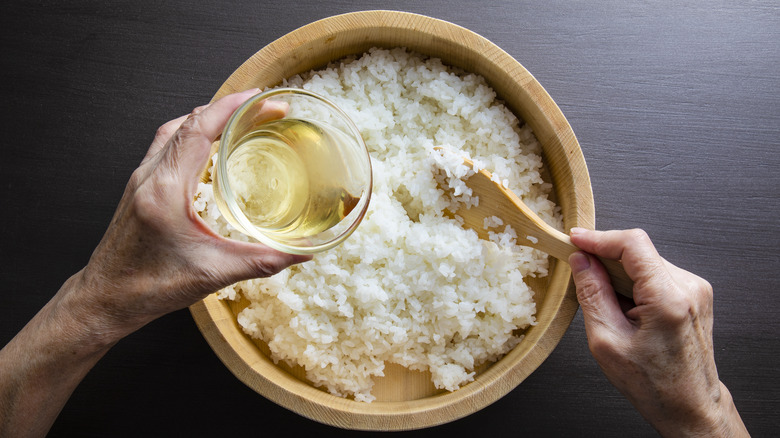The One Type Of Rice You Can (And Should) Skip Washing
When making most types of rice, you'll want to wash it before cooking it. There are some types of rice you'll even want to wash multiple times: Many people wash basmati or jasmine rice three times before they cook. There are several reasons for doing this. First off, it removes debris. Raw rice can contain small stones, dust, or other debris picked up during harvesting, processing, or packaging. Washing helps to remove these impurities, ensuring that your cooked rice is clean and safe to eat.
Then, most importantly, washing removes excess surface starch from rice, which can make the cooked rice less sticky and prevent it from clumping together. For recipes like biryani or pilaf where you want the rice grains to remain separate and fluffy, washing helps to remove surface starch, reducing stickiness and ensuring a better texture.
But you don't want to wash all kinds of rice. For some rice recipes, that starch you'd be removing is important. Here's when you want to skip the wash.
Sometimes, skip washing short-grain rice
For recipes like risotto, paella, or sticky coconut milk rice, short-grain rice like Arborio or Carnaroli is used for its high starch content. This starch is essential for creating the creamy texture characteristic of a good risotto. Washing the rice would remove some of this starch, which is undesirable for achieving the desired creamy consistency.
The creamy texture is achieved by gradually releasing the starch from the rice as it cooks and is stirred with the broth. The starch on the surface of Arborio or Carnaroli rice helps absorb the flavors of the broth, enhancing the overall taste of the dish. Washing the rice before cooking will wash away all that starchy goodness, diminishing the rice's ability to release starch during cooking. That will leave us with a less creamy and less cohesive final dish. And nobody wants that.
This rule for not washing short-grain rice only goes so far. There are, of course, exceptions depending on what you're cooking.
But not all short-grain rice
Sushi is made with short-grain, sticky sushi rice, and chefs recommend washing it before cooking. Chefs have different preferences for stickiness but generally recommend washing sushi rice three to four times. If you don't, the massive amount of starch ends up making the rice mushy and overly sticky. The starch can also prevent the rice from properly absorbing the vinegar mixture used in sushi rice preparation.
It's also worth noting that pre-packaged instant rice labeled as "pre-washed" or "ready-to-cook" has already been rinsed during processing. There's no need to wash it; simply follow the package instructions to cook it through.
So, it all comes down to what you're cooking. If you need extra creaminess or stickiness in your dish, you'll skip washing some rice, or wash it only a little. Other dishes that call for fluffy rice need a thorough wash and soak. You can even preserve the rice water to add to sauces and stocks later.


